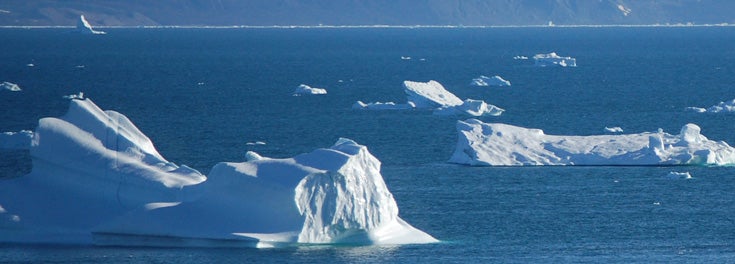
If you want to play a role in addressing what may be the most significant issue of the 21st century – climate change – then URI might be just the place for you. Our scientists, economists, engineers and students are already at the forefront of research on the changes taking place as a result of our warming planet. And now, we’ve been selected to lead a nationwide effort to educate the American public about the science of climate change.
The National Science Foundation just awarded the University’s Graduate School of Oceanography a $1 million grant to build the scientific literacy of our public about climate science.
Political wrangling over the causes and implications of climate change has left Americans confused and ill-informed. Yet the science is clear and unambiguous – humans have caused the rapid warming of Earth, and the results will be significant sea-level rise, increased drought, more intense storms, increased incidence of vector-bornes diseases and other serious consequences. The challenge now is educating the public, and especially policymakers, that the crisis is real and needs swift action.
That’s where we come in. The National Science Foundation just awarded the University’s Graduate School of Oceanography a $1 million grant to establish the Climate Change Education Alliance – a network of climate change scientists, educators, communication professionals, and government and private-sector stakeholders to increase the scientific literacy of our public about climate science.
Led by Inner Space Center Associate Director Gail Scowcroft, who’s been spearheading marine science and climate change education programs at the Graduate School of Oceanography since the 1990s, the URI team also consists of Inner Space Center staff members Andrea Gingra, Romy Pizziconi, and Derek Sutcliff. They’ll join with the National Science Foundation (NSF), National Oceanic and Atmospheric Administration, and National Aeronautics and Space Administration to coordinate climate change education programs. NSF has already established six regional climate change programs around the country, made up of universities, science centers, regional agencies, and communications partners. The URI hub will link these regional climate change partnership efforts, initiate cross-region activities, and leverage additional funding.
The first national meeting of the Climate Change Education Alliance was held at the Graduate School of Oceanography in June to develop a strategic plan for building the Alliance and prioritizing activities for the coming year. Among Director Scowcroft’s priorities is to establish additional regional programs, including one in the Gulf States.
“There are obvious political challenges to promoting the science of climate change, but it’s important that we do it now,” she said. “We may take some heat for it occasionally, however, the foundation of the Alliance is peer-reviewed scientific research. Climate science is based on numbers, models, and data; it’s not about consensus and debate.”
